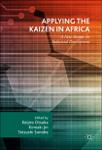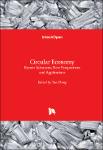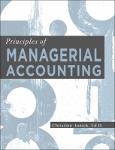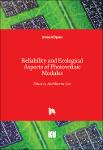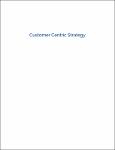Search
Author
- Osman, Ahmed I. (5)
- Daqing, Ma (3)
- Jorgensen, Ed (3)
- Li, Yan (3)
- next >
Subject
- kinh tế (26)
- Economics (12)
- programming (10)
- XRD (10)
- next >
Date issued
- 2020 - 2025 (2129)
- 2010 - 2019 (129)
- 2000 - 2009 (9)
- 1999 - 1999 (1)
Has File(s)
Search Results
At present, how to develop industries is a burning issue in Africa, where population growth remains high and economic development has thus far failed to provide sufficient jobs for many, especially young people and women. The creation of productive jobs through industrial development ought to be a central issue in steering economic activity across the continent. The authors of this book, consisting of two development economists and five practitioners, argue that the adoption of Kaizen management practices, which originated in Japan and have become widely used by manufacturers in advanced and emerging economies, is decisively the most effective first step for industrial development in Africa. This open access book discusses what Kaizen management is, why it is applicable to Africa, a... |
Nowadays, the restriction of resources and the environment is very severe. A circular economy is the only way to sustainable development, but how this works still needs more exploration. The series of studies carried out by the author are described in detail in this book. |
The goal of this book is to teach you to think like a computer scientist. I like the way computer scientists think because they combine some of the best features of Mathematics, Engineering, and Natural Science. Like mathematicians, computer scientists use formal languages to denote ideas (specifically computations). Like engineers, they design things, assembling components into systems and evaluating trade offs among alternatives. Like scientists, they observe the behavior of complex systems, form hypotheses, and test predictions.The single most important skill for a computer scientist is problem-solving. By that I mean the ability to formulate problems, think creatively about solutions, and express a solution clearly and accurately. As it turns out, the process of learning to prog... |
"The University of North Georgia Press and Affordable Learning Georgia bring you Principles of Managerial Accounting. Well-written and straightforward, Principles of Managerial Accounting is a needed contribution to open source pedagogy in the business education world. Written in order to directly meet the needs of her students, this textbook developed from Dr. Jonick’s years of teaching and commitment to effective pedagogy.
Features:
Peer reviewed by academic professionals and tested by students
Over 100 charts and graphs
Instructional exercises appearing both in-text and for Excel
Resources for student professional development
This textbook is an Open Education Resource. It can be reused, remixed, and reedited freely without seeking permission." |
There are a number of excellent, comprehensive, and in-depth texts on MIPS assembly language programming. This is not one of them.The purpose of this text is to provide a simple and free reference for university level programming and architecture units that include a brief section covering MIPS assembly language programming. The text assumes usage of the QtSpim simulator. An appendix is included that covers the download, installation, and basic use of the QtSpim simulator.The scope of this text addresses basic MIPS assembly language programming including instruction set usage, stacks, procedure/function calls, QtSpim simulator system services, multiple dimension arrays, and basic recursion. |
This open access book focuses on the issue of sustainability standards from the perspective of both global governance frameworks and emerging economies. It stems from the recognition that the accelerated pace of economic globalization has generated production and consumption patterns that are generating sustainability concerns. Sustainability standards (and regulations) are increasingly being used in a bid to make global consumption and production more sustainable. Given the dense inter-connectedness of economic affairs globally, the use of sustainability standards has become a concern of global governance, who face the challenge of achieving a balance between the use of standards for genuine sustainability objectives, and not allowing them to turn into instruments of protectionism ... |
Photovoltaic (PV) solar energy is expected to be the world's largest source of electricity in the future. To enhance the long-term reliability of PV modules, a thorough understanding of failure mechanisms is of vital importance. In addition, it is important to address the potential downsides to this technology. These include the hazardous chemicals needed for manufacturing solar cells, especially for thin-film technologies, and the large number of PV modules disposed of at the end of their lifecycles. This book discusses the reliability and environmental aspects of PV modules. |
The 21st Conference of the Parties (CoP21) to the United Nations Framework Convention on Climate Change (UNFCCC) shifted the nature of the political economy challenge associated with achieving a global emissions trajectory that is consistent with a climate. The shifts generated by CoP21 place country decision-making and country policies at centre stage. Under moderately optimistic assumptions concerning the vigour with which CoP21 objectives are pursued, nearly every country in the world will set about to design and implement the most promising and locally relevant policies for achieving their agreed contribution to global mitigation. These policies are virtually certain to vary dramatically across countries. In short, the world stands at the cusp of an unprecedented era of policy e... |
In the quantitative determination of new structures, micro-/nano-crystalline materials pose significant challenges. The different properties of materials are structure-dependent. Traditionally, X-ray crystallography has been used for the analysis of these materials. Electron diffraction is a technique that complements other techniques; for example, single crystal X-ray diffraction and powder X-ray diffraction for determination of structure. Electron diffraction plays a very important role when crystals are very small using single crystal X-ray diffraction or very complex for structure solution by powder X-ray diffraction. With the introduction of advanced methodologies, important methods for crystal structural analysis in the field of electron crystallography have been discovered, s... |
Customer centricity is about organizational transformation making the customer the focus for business decisions, processes, product development, services, and procedures. Some companies purport to be customer centric but they fall short in connecting this concept throughout all functional areas of the business. While it is important to offer superb customer service, being customer centric is far more than that. It's about mapping the customer journey to discover customer needs and wants, what's working and what is not, then taking action to improve the customer experience. Customer loyalty is built through providing exceptional customer experiences. This in turn increases revenues through positive company image, referrals, and increased customer lifetime value. Most organizations... |

